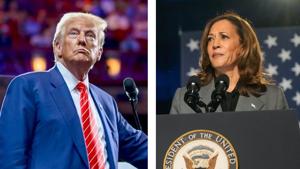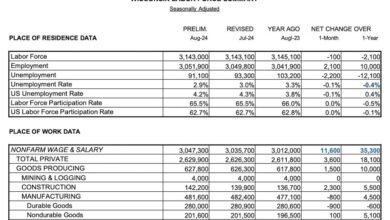Harris-Trump polling margins razor-thin in Wisconsin | Wisconsin


(The Center Square) – New polling from Wisconsin shows the presidential race in the state remains too close to call.
The survey, conducted Oct. 16-24 by Marquette Law School, shows Democrat Vice President Kamala Harris barely leads Republican former President Donald Trump 50% to 49% among Wisconsin voters. The results fall well within the poll’s +/-4.4 margin of error.
“It should not surprise anyone if Donald Trump wins, and it should not surprise anyone if Kamala Harris wins,” MLS poll Director Franklin said. “Because the polling – both ours and the polling averages for the state, which is under a 1% average margin right now – are just so close that polling is not going to help us at all to have confidence in who’s the likely winner.”
The partisan makeup of the poll sample, which included 834 registered and 753 likely voters, is 39% Republican, 31% Democratic, and 34% Independent.
Favorability ratings have remained mostly stable for the presidential candidates, but have significantly changed for their vice presidential picks.
Trump went from a net -11 in September to a -14 in October, while Harris’s ratings also dropped during that time from -3 favorability to -5 favorability. But Sen. J.D. Vance’s favorability has shot up by 9 points since last month, though he still has a net negative rating, -4 percentage points. By contrast, Gov. Tim Walz’s favorability has dropped 7 points since last month, with his current rating at exactly zero percentage points, still the highest out of all the candidates.
Candidate images have barely changed, with voters still believing Harris has a better personality overall than Trump. Voters’ opinions on who would do a better job on political issues have also mostly remained the same, with the majority believing Trump would better handle the economy, immigration and border security, the Israel-Hamas war, and foreign relations. Harris scores much higher on the issues of Medicare and Social Security, health care and abortion policy.
The economy remains by far the most important issue for Wisconsin voters at 38%, with abortion policy at 15% and immigration and border security at 13%.
“If you look at personality, most of those favor Harris. If you look at issues, it’s a split. But when you look at the single most important issue to people, it’s a slight Trump advantage,” Franklin summarized. “So that kind of explains why we have such a close race.”
MLS also analyzed the voter gender gap using a pooled sample of all registered voters interviewed in the four MLS polls from July to October. Women, who made up 51% of registered voters in the combined July-October polls, favored Harris by 14 percentage points, while men, who made up 48%, favored Trump by 12 percentage points, a 26-point gap between the genders. Though significant, the difference is smaller than the 32-point gap in 2020 and the 30-point gap in 2016.
The gender gap is especially large among non-white voters, suburban-dwelling voters, and voters under age 30 and between the ages of 45-59. The gender gap is smallest within rural communities and small towns, older voters, and born-again Protestants.
Enthusiasm levels across both the gender and partisan gap remain high, something Franklin says could drive voter turnout to 2020 levels.
“[The year] 2020 set records for turnout. It would be hard to reach those levels again,” Franklin said. “But I think with this level of enthusiasm, we do have some reason to believe that we should expect to see turnout close to the 3.3 million we saw last time.”
Source link




